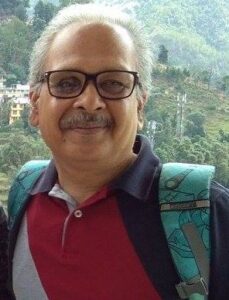Warm Greetings!
It’s simple. Indians need employment as well as food security. There’s no contradiction about that. However, some of the business models need serious review as the apparent job creation in such ventures could just be an illusion.
An avoidable social upheaval is invited when a factory is raised in a fertile multi-crop land to produce consumer goods on the premise of providing employment to the local population. Ironically, the local folks there are already occupied in producing food crops in an efficient engagement with nature!
Such lopsided policy decisions are bound to compromise food security in the long run and play a havoc with the livelihoods of a large part of the Indian population—and increase, thereby, inequality in the society. In almost every sector of the Indian economy these types of contradictory benefits can be observed.
Vehicles are needed for transport. The economy cannot survive without them. But certainly not those automobiles that run on fossil fuels. The consequences of such modes are dire and contraindicative. They pollute the environment and raise the health cost of citizens unnecessarily.
Public Policy as an idea appeared to be ripe for further exploratory actions. We took the next step on April 1, 2012 and founded Public Policy India. Analysis of news and business models from the perspective of public policy is our maxim.
Our qualified and experienced team of analysts, diligent researchers and seasoned editors together offer a rare insight into India’s economy, the challenges and business opportunities in each sector of the economy and successful case studies of public policy initiatives that marry business with social objectives.
Our Insight Reports carry information of the kind that poet Ezra Pound calls “news that stays news”. Our subscribers include CEOs of top Indian companies and MNCs, libraries of academic institutions, top B-schools in India, engineering colleges, law firms, research organizations, internationally acclaimed NGOs and some UN organizations.
To retain our independence—necessary to provide unbiased and credible information, we don’t accept any advertisements, sponsorships or any kind of funds from any government or private organization. Our revenue comes from our subscribers—people like you, who trust our honesty, and pay for our research, analysis and writing.
We believe—and we hope you would endorse too—that knowledge is power and credible information helps in taking effective decisions quickly. The ripples of it inevitably impact a large section of people. It raises the value of endeavours across the spectrum and makes our society more just.
An event in our journey that we enjoyed most was making of our signature tune. The idea of melody as an introduction to serious matter appeared a bit whimsical. But slowly it dawned that it would give an ethereal sensation before one delves into serious public policy.
Listening to Ritesh Pathak’s rendition of Indian classical music on several occasions has been an exhilarating experience. But conveying our verbose to him was not that easy. It took several hours of intense engagement spread over days. He tolerated our impatience—simply by being patient! Then followed a week of silence—no discussion. We waited.
Finally, one fine morning, while he was immersed in riyaz, it burst out into a taste of elegance inspired by Raga Anandi Kalyan—in his voice.
Hope you have enjoyed our signature tune created by Ritesh Pathak.
Kind regards,
Yours hastily,


Debasis Sen, Editor & Publisher.
debasis@publicpolicyindia.in
A seasoned business journalist, Sen has over 30 years of experience in research, analysis and writing. He has written on strategies, trends, business models and new opportunities in sectors such as IT, pharmaceutical, health, sustainable development, art & culture, advertising, marketing to retail in a number of reputed publications. He has also authored a significant report on ICT opportunities in rural India for Alfred P. Sloan Foundation, USA.
A newspaper as well as a magazine journalist, he has been involved with conceptualization of new niche business publications, design, section contents, recruiting and managing editorial staff and bench-marking editorial quality.
At Times of India, India Today, Indian Express, Business Standard, TERI, Development Alternatives and UN, he reaped the harvest of best global practices, sharpened his editorial skills and enlarged his horizon.

